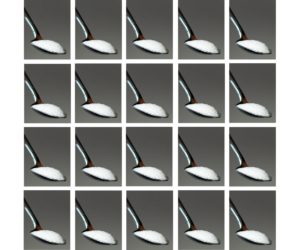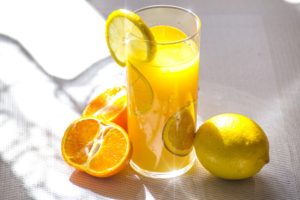
Added sugars make up about 13% of the average American’s calorie intake, and this number jumps to 16% among children and adolescents. This is roughly equal to 20 teaspoons of added sugar per day!
Soda Taxes
The link between sugar and chronic disease is strong, and there is a push to reduce sugar intake as a way to lower rates of obesity and chronic diseases such as diabetes, heart disease, and cancer. Beverages with added sugar are the largest source of sugar in Americans’ diets, which has made them a major focus of public health. Some cities in the U.S. now have taxes on drinks with added sugars. Boulder, Colorado is one of the cities to most recently tax drinks with added sugar. The public voted for the tax in November 2016, and it will go into effect in July 2017.
In Boulder:
- Beverage distributers will be taxed two cents per ounce, a cost which may be passed on to the retailer and then to the consumer.
- The tax is expected raise $3.8 million in the first year, which will be applied towards public health initiatives, some specifically aimed at low-income residents.
- The taxes are labeled as “soda taxes” which may be a little misleading, since they also include other sweetened beverages such as energy drinks, teas, and kombucha.
- The tax applies to any drink that has more than 5 grams (a heaping teaspoon) of added sugar in a 12-ounce drink. (Milk and 100% juice are not included.)
We do not know yet how Boulder’s tax will affect sugar intake, health, or business. However, similar taxes have been effective at decreasing sugar consumption in other countries, such as Mexico. Researchers estimate that over the next ten years, the tax in Mexico could lead to hundreds of thousand fewer cases of chronic disease. In addition, reduced diabetes medical costs alone may save $983 billion dollars.
Healthy Alternatives to Sugary Drinks

All policy aside, next time you need to quench your thirst consider the options below for a refreshing alternative to a sugar-sweetened beverage:
- Instead of soda, choose unsweetened sparkling water, now available in a variety of flavors!
- Add a handful of berries, diced melon, or some fresh mint to a pitcher of ice water for enjoyment all day long.
- Dilute 100% fruit juice with equal parts water to reduce the amount of sugar per serving.
- Try a cup of tea, whether herbal, green, or black. Serve hot or iced with fresh squeezed lemon or just a touch of honey for a bit of sweetness.
- In place of sugar or flavored syrup, try a dash of cinnamon to flavor your coffee instead!
- Choose a glass of milk for a nutritious snack or beverage with any meal.
The health risks that come accompany consuming too many sugary drinks are well established, but luckily there are great alternatives. Low-sugar drinks can not only reduce your health risks, but they are refreshing and delicious, too!


Yes, in some individuals eating too much sugar can lead to nonalcoholic fatty liver disease (NAFLD). In the early stages, this can be reversed. Reducing/limiting intake of added sugars and exercise/weight loss can help to reverse NAFLD. However, if it has progressed to later sages, the liver becomes inflamed, which can cause damage, at which point it may not be reversible.
Thanks for the great article. My favorite splurge beverage is chilled filtered water with cut cucumbers and crushed mint. I feel like this is the kind of beverage I would be served if I were at a spa, so I call it Spa Water. I have taken it to several pot lucks and people really enjoy it.
Is it true that consuming too much sugar can lead to fatty liver disease? If so can this be reversed?